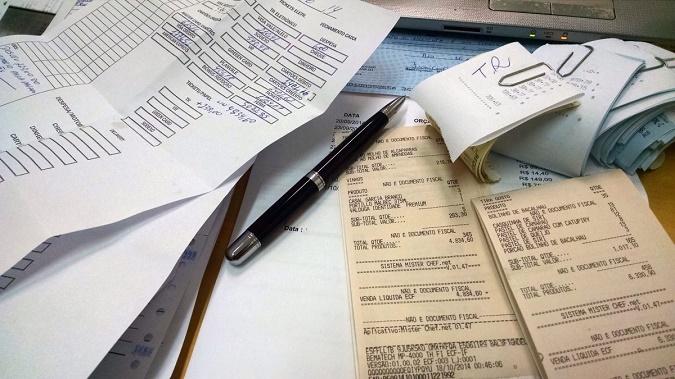What You Should Know About Cash Flow Statements

Despite not having a business or finance degree, you can still run a business – as long as you know the basics of the business operations and you have your financial records and statements in order.
When it comes to preparing your business’ financial statements, it is one of the initial struggles small business owners face. These are written records that show the activities and the financial performance of your business.
Aside from the balance sheet and income statement, the cash flow statement is also included in these essential records. This specific financial record is needed to measure your business's health and ability to operate efficiently, including paying its bills and continuing to grow.
Before we dig deep into cash flow statements, it’s important to understand what it is and how it works.
What Is Cash Flow Statement, and How Does It Work?
Cash flow statement is simply a financial statement detailing the movement of cash and cash-equivalents in and out of your business.
A business owner should know that cash flow is divided into three categories:
- Cash flow from operating activities,
- Cash flow from investing activities, and
- Cash flow from financing activities.
Also, you’ll need to understand that cash flow management is just one of several tasks under finance and bookkeeping. There are other essential tasks that you need to look into as well, but cash flow is usually the top priority for everyday operations.
Cash from operations is basically cash generated by your business's main activities, which include the sales of your products and or services. A simple formula is used to determine what are the sources of this cash flow:
Cash Flows from Operations = Net income + Noncash Expenses + Changes in Working Capital.
As the owner or manager of a business, you should be aware that the amount of time your investors take before contributing to your working capital affects this cash flow.
Meanwhile, cash from investments includes the capital assets you bought and investments you placed on other business ventures; and the capital your business uses to fund the operations falls under the cash from finance.
Cash gained from issuing debt and equity, as well as payments your business made is also included in the last category. Take note that outcomes may vary depending on the different capital structures, dividend or debt terms and conditions companies follow.
The Importance and Benefits of Cash Flow Statement
You may wonder why monitoring cash flow is essential even for a small and upcoming business.
Well, aside from the reality that most businesses die due to lack of cash, having and monitoring a cash flow statement will help you as an owner to know the current status of your business and what you could expect in the near future.
If you are starting to notice that your business is constantly having negative cash flow, where you spend more cash than generating it from your sales over a period of time, there is a problem and you need to fix it as soon as possible to keep your business afloat.
For a better and broader understanding of this financial record and it's importance, here are some of the top reasons and situations that demonstrate the benefits of cash flow statements:
I. A cash flow statement can help you to be financially prepared.
This financial record allows your business to manage and prepare a sufficient amount of liquid funds that could help in meeting the various obligations you could possibly encounter. This could be the payment of debts, various expenses that could improve your business operations.
II. An accurate and updated cash flow statement provides you with details of where your funds were spent.
This record provides details that are not reflected in your income statement or profit and loss statement. It will give you the information on where your money went during a certain period.
For example, let’s say you are paying a loan you got so you can start your business. The amount you pay back to the bank is not reflected in the income statement. This recurring movement of funds can be seen and reflected in your business' cash flow statements.
Through your business' cash flow statements, you can monitor if your business will be left with enough cash after the payment, or better yet if you still have excess.
III. Cash flow statements reveals if you successfully met your initial cash plan.
It will help you analyze if your planned budget for your business is enough.
If, for example, your business expenditures failed to meet your budget, a cash flow statement can help you in planning and adjusting your budget in the future.
As you can see, having a cash flow statement is important to your overall business health and your current and future business strategy. This record is especially essential if your business is seasonal or if it’s open to fluctuating cash inflows throughout the year.
IV. Investors consider your cash flow statements
If you are planning to expand your business, you may need investors or shareholders to make it happen. Maintaining an accurate and positive cash flow statement can help you seal the deal.
Investors will never put their money on businesses that have a consistent negative cash flow within a period of time. They’ll want a transparent look at how you manage your finances so they can trust you with their money and cash flow statements help with that.
V. Cash flow statements are needed during audits
Similarly, because this is an essential financial record that can reveal the overall health of your business, auditors and regulators will want to check it to make sure your business is still in compliance of the expected policies implemented within and outside your company.

Aside from cash flow statements, there are many other records your business needs to prepare for the smooth running of the business. All of these necessary documents must be kept well and relayed to your bookkeeper, accountant, or the person that handles your finances, which is why bookkeeping is very important for any business.
Bookkeeping involves the recording, on a daily basis, of a company’s financial transactions. Its role and importance for the success of businesses (big and small) is vital.
The Importance Proper Bookkeeping
Proper bookkeeping and management of your business finances and records is integral to accounting. It entails recording all financial transactions and plays a crucial role in growth.
Besides helping in organizing and analyzing your records, bookkeeping also provides a clear view of your profit growth and helps in tracking cash flow. It gives you a reliable measure of your business’ performance. So, ensure that you maintain proper records.
Every data on your financial records must be accurate as it provides strategic insights and a benchmark for your business’ revenue and income goals. Accurate data is very useful when budgeting your funds, creating your business plan, and in future decision making.
You may also be required to present these records to future investors, financial institutions, or the government. The success of outside investments relies on accurate and reliable bookkeeping.
However, some entrepreneurs often overlook proper managing of business records, including cash flow statements, which is a mistake that can be very costly in the long run.
Cash flow statements summarize your finances within a time period and bookkeepers and accountants often provide valuable analysis of these records to give you a clearer picture of the current state of your business.
Implement a proper bookkeeping strategy and maintenance of your financial records. It will go a long way in helping you plan ahead and make sound decisions that ensure your business thrives.




















